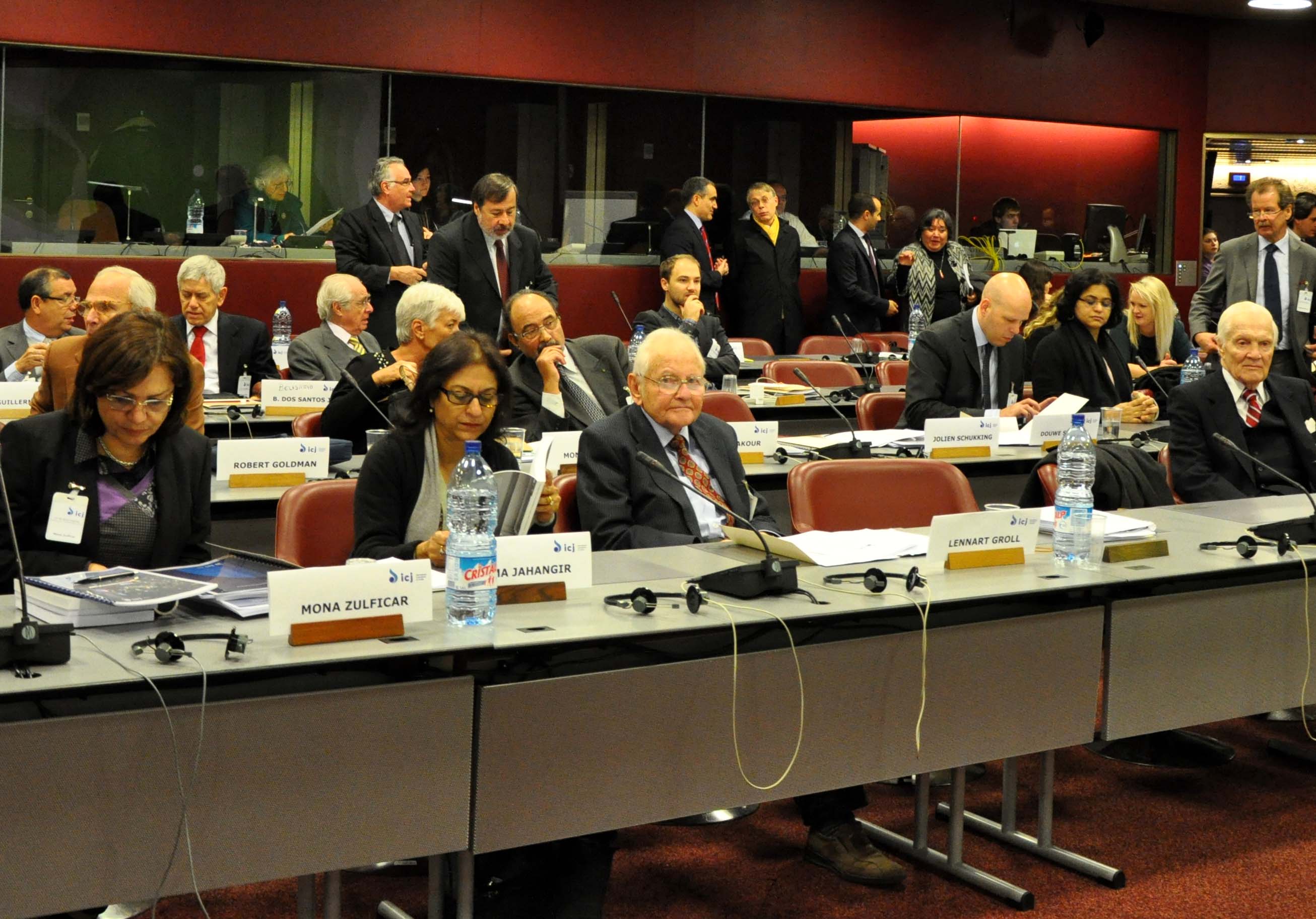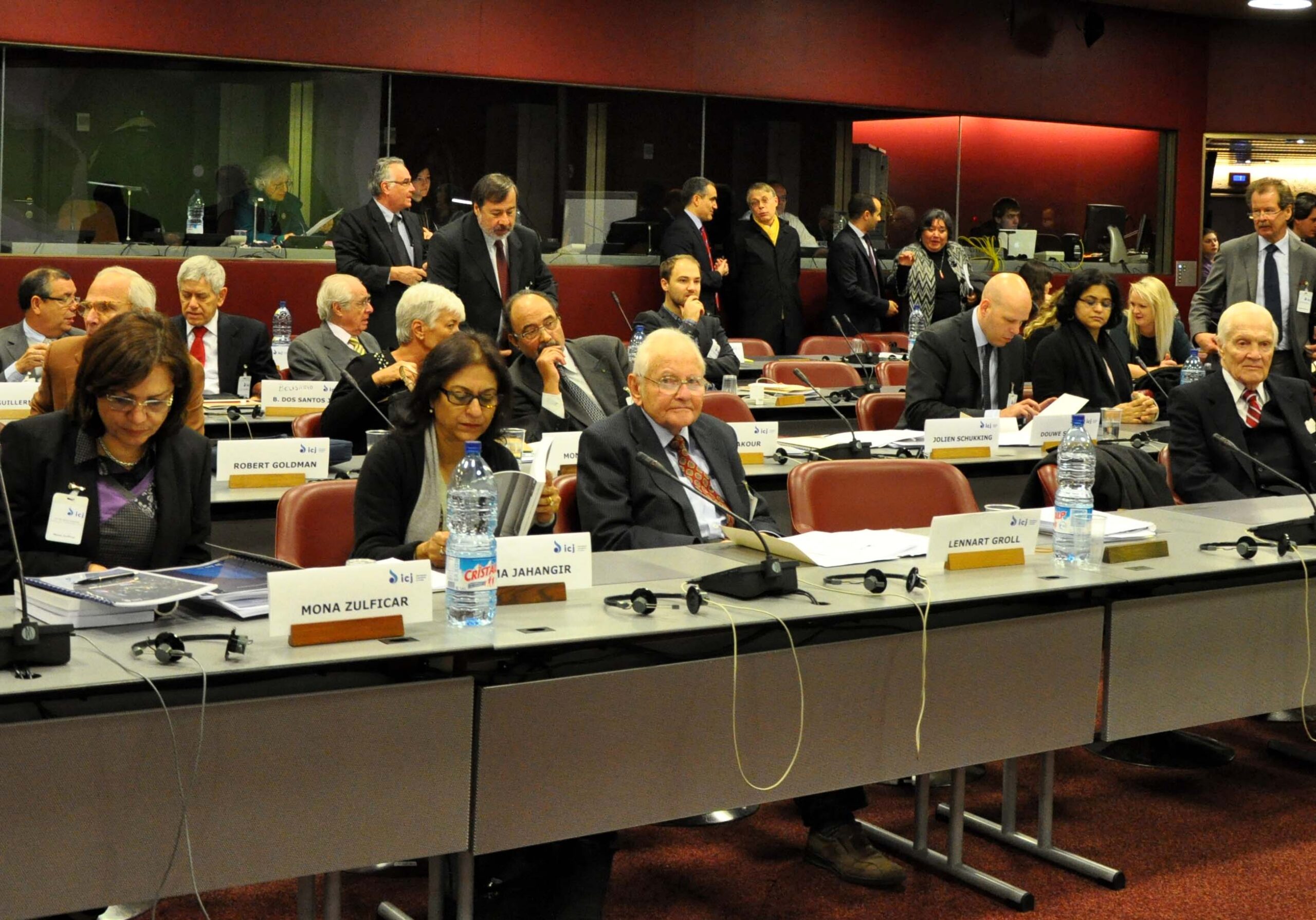 Leading jurists gather at ICJ World Congress to work on international legal remedies to human rights violations.
Leading jurists gather at ICJ World Congress to work on international legal remedies to human rights violations.
The Congress is bringing together 120 leading judges, lawyers and human rights defenders from the five continents. The theme of the event is addressing the need to develop international mechanisms, including judicial mechanisms, for accountability and remedy where such mechanisms are non-existent or dysfunctional and to strengthen such systems and mechanisms where they are at least partly effective.
See the opening press release in English and in French here:
Congress ICJ2012-Press release-2012
Congress ICJ2012-Press release-2012-fr
To watch the ICJ 17th World Congress in pictures, click here
ICJ principle reaffirmed and advanced at the Congress
All internationally recognized human rights must not only be guaranteed in law but must also be accompanied by the availability of effective remedies. The ICJ has long considered that where human rights are underpinned by international legal obligations, such as those contained in universal and regional human rights treaties, those rights must be accompanied by legal (binding) and judicial international remedies.
Such remedies must be available, accessible, and effective, ie, binding and capable of bringing adequate reparation.
Issues addressed by the Congress
While most essential rights areas are now covered by universal and regional human rights treaties, the availability and enforcement of remedies are patchy best. At the universal level, the remedies available through treaty body communication systems are non-judicial, non-binding, and in a number of respects have proved ineffective.
Regionally, the European and Inter-American systems have offered partially effective remedies. However, even these systems are beset with difficulties that undermine the effectiveness.
The African system is just beginning to operationalize its regional court and sub-regional courts, but there have been huge obstacles to their operations, including political interference.
In MENA, a strong human rights treaty, the Arab Charter, covering the Arab League (extending to most, but not all, of the MENA countries), has recently come in force, but the existing weak supervising machinery has not even established a non-binding complaint system, much less a court.
In Asia, the ASEAN countries have recently established a human rights commission under the ASEAN charter, but they are only now developing their first soft normative instruments, so any remedial machinery is a long way off. The non-ASEAN countries of the Asia Pacific region do not have any regional human rights system.
ICJ Objective
The ultimate objective for the ICJ is to achieve universal access to effective international (as well domestic) judicial remedies for all human rights at the universal and regional levels. However, the various human rights systems are at different stages of development, and so the short to medium term strategies and objectives towards achieving justice for victims of violations will vary from system to system.
Within that context, the ICJ congress is debating precisely, in broad terms, the shortcomings of international justice and decide what is needed to address the problems. The organization as a whole will commit to these broad objectives, and over the coming years the international secretariat and the regional programs will devise strategies on how to reach the objectives.
Output at the Congress
The end document produced by the Congress will be a Declaration containing
- Several paragraphs at the level of general principle on the requisite elements of accessible and effective remedy for international human rights violations.
- Six sub-sections, one for the universal/UN human rights system and one for each of the five regions Under each sections, five points will be elaborated on laying out objectives for the respective regions and universal system.
Below, you will find all the key documents produced for or at the Congress. This special page will be updated regularly in due time, before and during the event.
Contact the Congress Secretariat at icjcongress@icj.org
Dates and venue of the 17th ICJ World Congress:
11-12 December 2012, at the International Conference Centre in Geneva (CICG). Address: 17, rue de Varembé 1202 Geneva Switzerland.
17th ICJ World Congress Agenda-events-2012 (download the agenda in PDF)
The ICJ 17th World Congress is supported by the City of Geneva.




